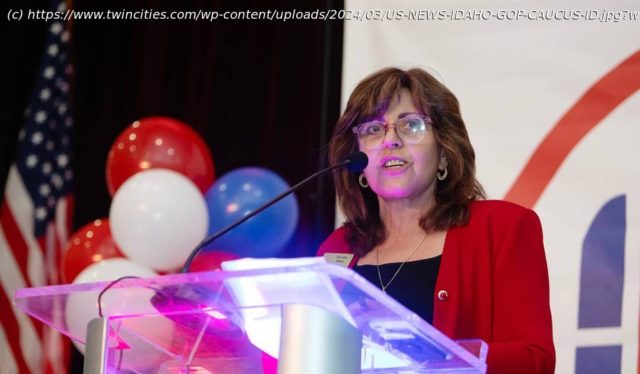Here’s what to know, even though there may not be much mystery in who will win.
Shaun Goodwin | Idaho Statesman (TNS)
BOISE, Idaho — The Idaho Republican Party decided to take a different course of action to determine this year’s Republican nominee for the 2024 presidential election.
Instead of the traditional primary election that many Americans are accustomed to, the party will hold a caucus on Saturday for the first time since the 2012 election cycle.
But what is a caucus, how does it work, and why is the Idaho Republican party switching things up in 2024? Here’s what to know, even though there may not be much mystery in who will win.
Primaries and caucuses have the same end goal of choosing a presidential nominee, but how they function is vastly different.
A typical primary will see voters show up at their polling location, confirm their voter registration with a poll worker, and then privately fill in a ballot before going on their way. If the polling station is quiet, a voter can be in and out within five minutes; in the worst-case scenario, you may have to wait in line for a while.
The candidate with the most votes is awarded the delegates for that state.
Each state awards a different number of delegates based on a formula set by the party, including factors such as the population and how well that state’s nominee has done in past presidential elections.
Idaho will award 32 delegates this year, and a nominee will need an estimated 1,215 delegates to secure the Republican nomination.
Caucuses work differently than your regular primary.
They can be envisioned as “private meetings” because, typically, they’re run by the state political party and are accessible only to registered voters of that party. (Idaho has a closed Republican primary as well, though.) During a caucus, voters can discuss their choice with other people, and their vote isn’t done privately in a booth but instead in the open alongside other voters.
Dorothy Moon, chair of the Idaho Republican Party, said in a public meeting in February that each candidate is expected to send in a video for voters to watch at the caucus. Because of the community aspect, participating in a caucus can sometimes take up several hours of a person’s day.
Start
United States
USA — Sport Idaho Republican presidential caucus is Saturday. Here’s how it works, what to...






